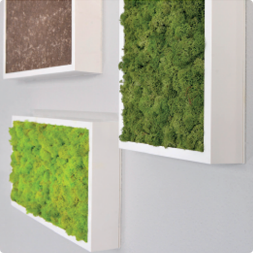Overwatering Your Plants? Plantz Can Help
If you love plants, you want to take good care of them. Making sure they have the right soil, sunlight, and nutrients ensures that your plant will provide the beauty and other benefits you want in your living or workspace. And the most frequent way people care for their plants is to water them.
But if you’ve heard the phrase “too much of a good thing,” you know that overdoing something helpful can sometimes be quite harmful. And that axiom is never truer than when it comes to watering your favorite houseplants. Overwatering inhibits growth, hurts foliage, and can be fatal if not stopped in time.
Signs of overwatering
If your houseplant’s growth slows or you see browning tips and curling leaves, that’s a sign that your plant is suffering from too much water. Unfortunately, those can also be signs that your plant is not getting enough water. And since the solution for underwatering is adding water and moisture, the wrong diagnosis can lead to exacerbating the very problem you’re trying to solve. This dangerous pattern, along with not knowing how much water a particular plant needs to thrive, is why overwatering is such a common problem and can be difficult to diagnose in time.
Why are the symptoms of overwatering and underwatering similar? It’s all in the roots. Without a healthy supply of oxygen, a plant’s roots will drown in too much water or moisture. They become soggy and soft, and cannot provide the necessary water and nutrients to the leaves. The leaves behave as if there was a lack of water since they aren’t getting enough nutrients to thrive. Eventually, the plant’s roots cannot provide physical support or water, and the plant dies. Obviously, it’s important to diagnose and treat the problem before that happens.
Fixing the Problem
Once you’ve recognized an overwatering situation, there are different levels of remedy. The first (and easiest) is to simply stop watering and give the soil a chance to dry out. But in severe cases, you might need to repot your plant. Check the roots and remove the ones that look mushy and irreparably damaged. Then place it in soil that drains well, and in a pot that also drains well. Hopefully, this will be the fresh start your plant needs to thrive again.
Preventing Future Issues
To avoid problems going forward with overwatering (and even underwatering), Plantz.com recommends the following tips:
Know your plant. Different plants have different needs, and making sure it has the right sunlight and watering schedule is essential to keeping them happy and healthy.
Use good soil. Make sure your houseplant has soil that drains properly and remains aerated at all times.
Get the right pot. The pot should have good drainage, ensuring water doesn’t accumulate under normal conditions.
Check the soil properly. Note that last word, “properly.” Checking soil is more than sticking a finger in the top part of the pot and seeing if it’s dry or moist. In fact, that’s a good way to begin the bad habit of overwatering. It’s best to check the soil closer to the roots, and your finger is not designed to be the optimal moisture-checker when it comes to houseplants.
Fortunately, you can get a tool that has been optimized for checking soil right here at Plantz.com: The Soil Sleuth. Simply push the tool to the bottom of the pot, twist, and bring it back up. The notches capture soil near the roots so you can inspect it for yourself and make the best decision as to watering. And while you turn, it aerates the soil near the roots, ensuring they get enough oxygen as well.
More Questions? Plantz Has Answers
If you have more questions about watering, we’re here to help. Simply contact us for more advice on getting your plant on the road to recovery.


















